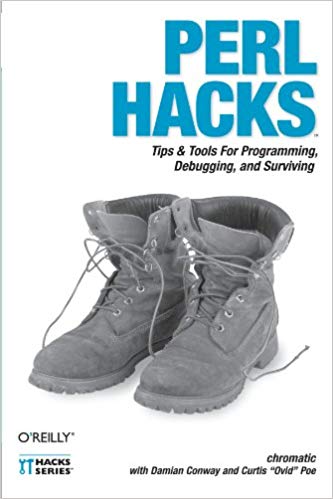Do you wonder how AI is going to impact your job? Your company? Your industry? Read on.
Years ago I was at a conference in Prague and listening to some guy literally yelling at me that Perl should die. He gave plenty of reasons why it should die and I noted with amusement that every complaint he had about the language was factually incorrect (not updated since last century, can’t protect against misspelled variables, etc.). When faced with naysayers, there’s a huge difference in opinion between those who know a topic well and those who don’t.
I see something similar happening with AI. People with a superficial knowledge of the subject matter are opining on the subject. I call them “ignoracles.” As I was one of them, I decided I didn’t want to be that guy in Prague, so I’ve been doing a deep-dive into AI. For the purposes of this, I’ll largely mean “large language models” when I refer to AI, and I’ll mostly be focusing on generative AI which handles text.
Further, if you’re going to research this yourself, make sure that you’re not pulling old articles. This field is moving insanely fast and articles published just six months ago are often wildly out of date.
AI is going through a “boom” period similar to the 90s' dot-com boom, the recent SPAC-fueled NewSpace boom, or “Tulip Mania.” AI, like these booms, is headed for a crash as companies rushing with confused business plans and investors forget about sound business principles and throw money at those companies. However, unlike Tulip Mania, there is real value here. AI is changing the business landscape forever.
For many of you, you’re worried about your jobs. Currently, many job losses are based around the text capabilities of AI. Marketing, advertising , journalism , etc., are all under threat for a variety of reasons, and not just because “AI can write it for you.” (a common misconception of ignoracles). One curious source of job loss, however, isn’t that AI will replace the roles, but the companies need to fire employees to free up cash to invest in AI .
And yes, programmers: AI is coming for your jobs, too. But not just yet. We’re getting better at having AI write software for us, even without human intervention. Because modern AI is still in its infancy, it’s not (yet) great at writing this software, but tools like ChatDev are showing us that there’s tremendous scope here. ChatDev uses AI “agents” to simulate multiple roles, including CEOs, marketing professionals, developers, testers, art designers, etc.
In short, you can give ChatDev a prompt, such as “Create an ebook reader for me,” and it will go off and create one. Most apps it creates are rather simple, but remember, this technology is in its infancy and rapidly evolving. Many in the field who are knowledgeable about the topic are bluntly asserting programming jobs are ending, but their timescales vary wildly. Ten years is a common figure, but assume there are wide error bars. We just don’t know.
For software development, the ignoracles point out that AI-written software is bad. Yes, it often is, but AI writes code and order or two of magnitude faster than humans and that makes it easy to test and iterate. Humans write software much slower and we also need to test and iterate. AI lets us do that much faster.
One CEO reported that he will fire any developer not using Copilot. Another CEO gave paid OpenAI accounts to all employees, offering cash incentives to employees who created the best workflows. After 30 days he fired everyone who didn’t use it. AI is impacting programmers now.
Currently, the safest jobs are those requiring a body, not a mind. Carpenters, barbers, truck drivers, and so on. There’s a lot of work in robotics to incorporate AI and it looks promising, but it’s a long way from being ready for prime-time.
I see companies falling into three camps around AI. One is simply ignoring it. I live in France and despite French AI companies such as Hugging Face and Mistral AI being huge, half of French companies have no plans on using AI . The other two camps are tactical and strategic adoption. Tactical responses are largely companies using AI to augment the capabilities of their employees and this is an area where AI shines. For strategic adoption, it’s a whole new ballgame.
Search engines are already using AI to make it much easier to search for what you want, but companies such as Anthropic, DeepL, AI21 labs, Databricks, Inworld AI and others are creating new products built on top of this new industry. I’m particularly interested in Inworld AI . Amongst other things, they can create NPCs and you can talk to them and have an intelligent conversation about the world you’re in. Gaming is huge and adding modern AI is going to drive development significantly.
But don’t just take my word for it. Take the word of almost 3,000 researchers who’ve published on the topic . (emphasis mine)
If science continues undisrupted, the chance of unaided machines outperforming humans in every possible task was estimated at 10% by 2027, and 50% by 2047 [...] However, the chance of all human occupations becoming fully automatable was forecast to reach 10% by 2037, and 50% as late as 2116.
Meanwhile, prompt engineering is a thing and most people are very bad at it. In a later post, I’ll talk more about it and why and how you should create a prompt library for your business.


